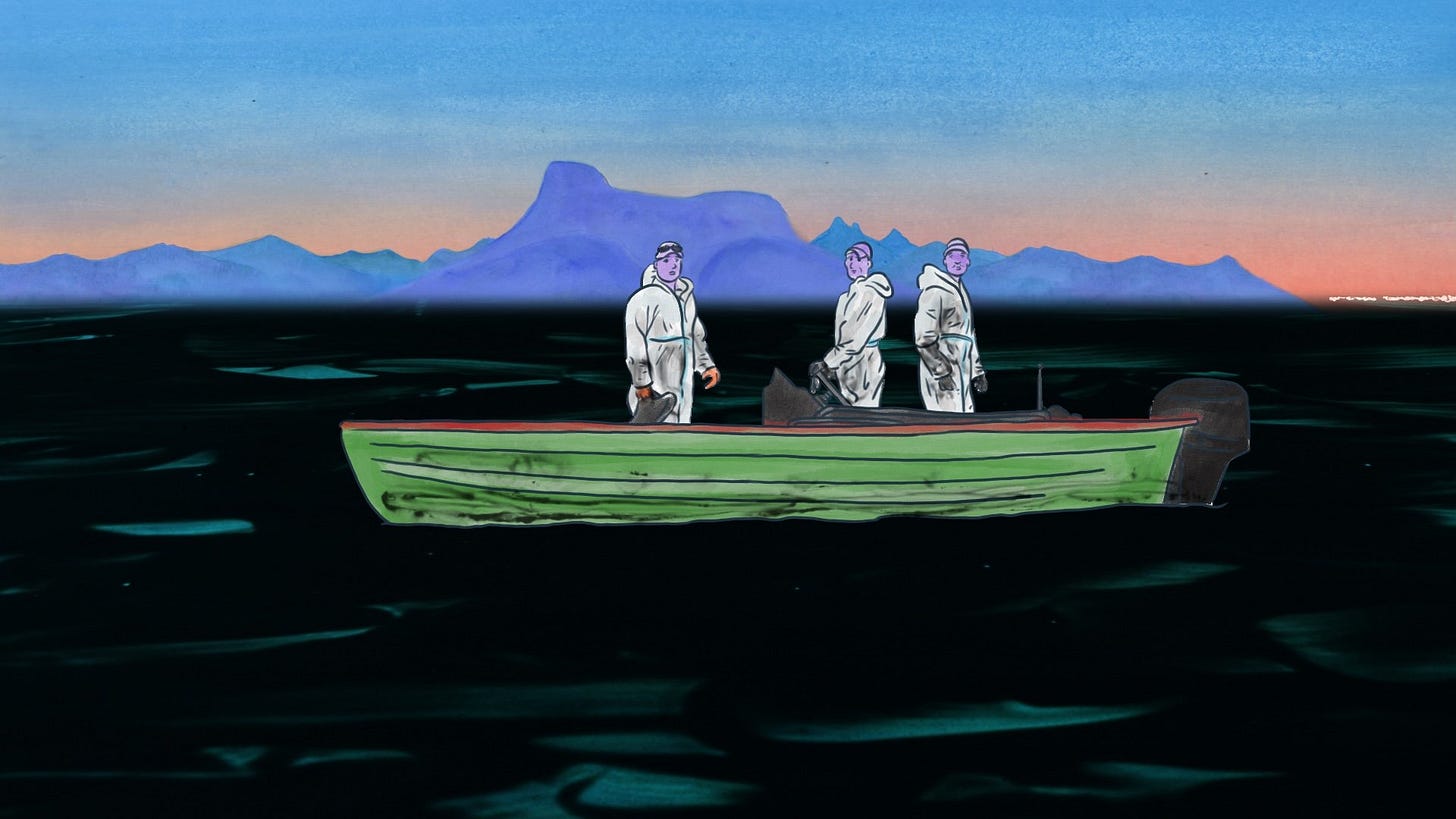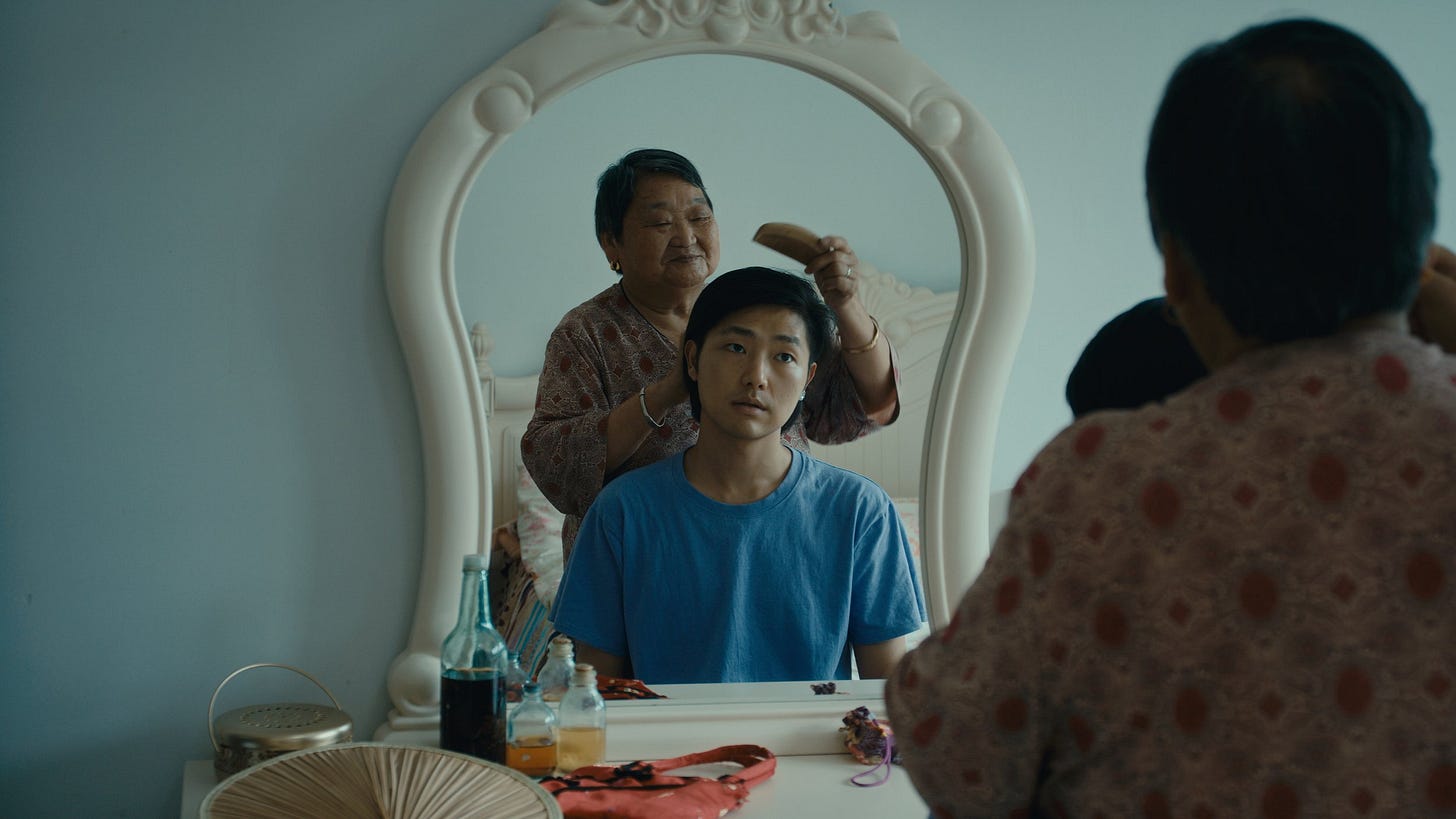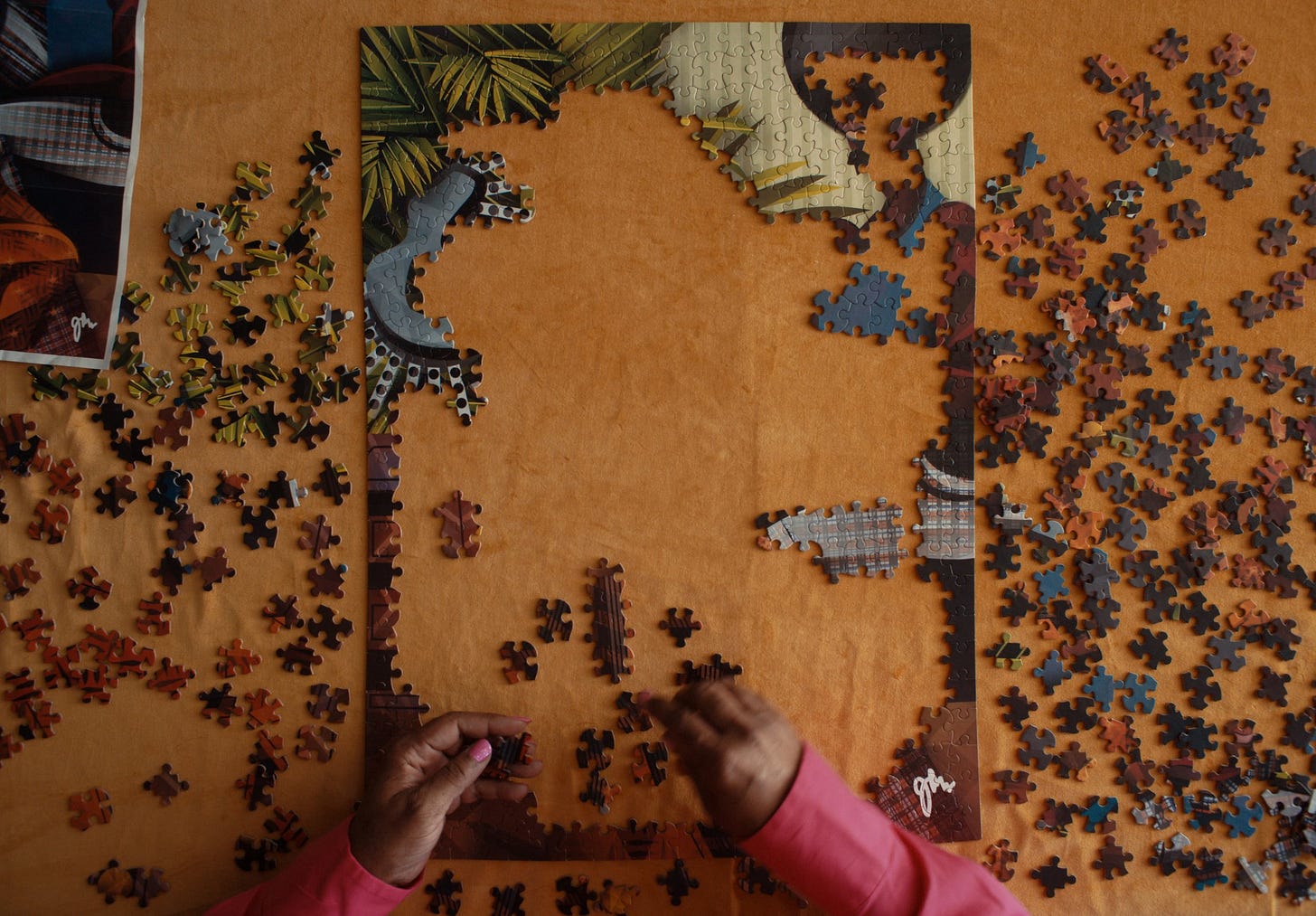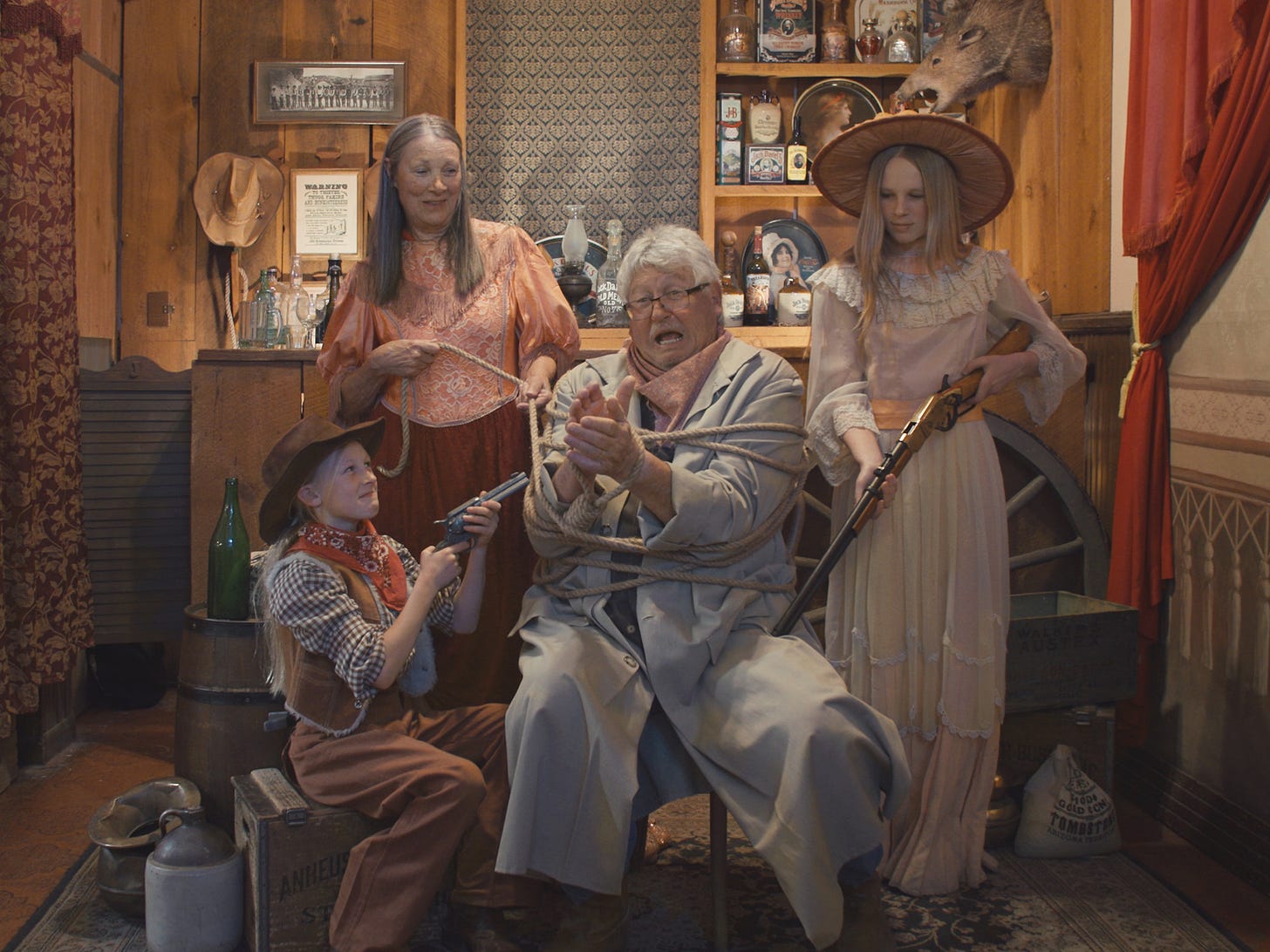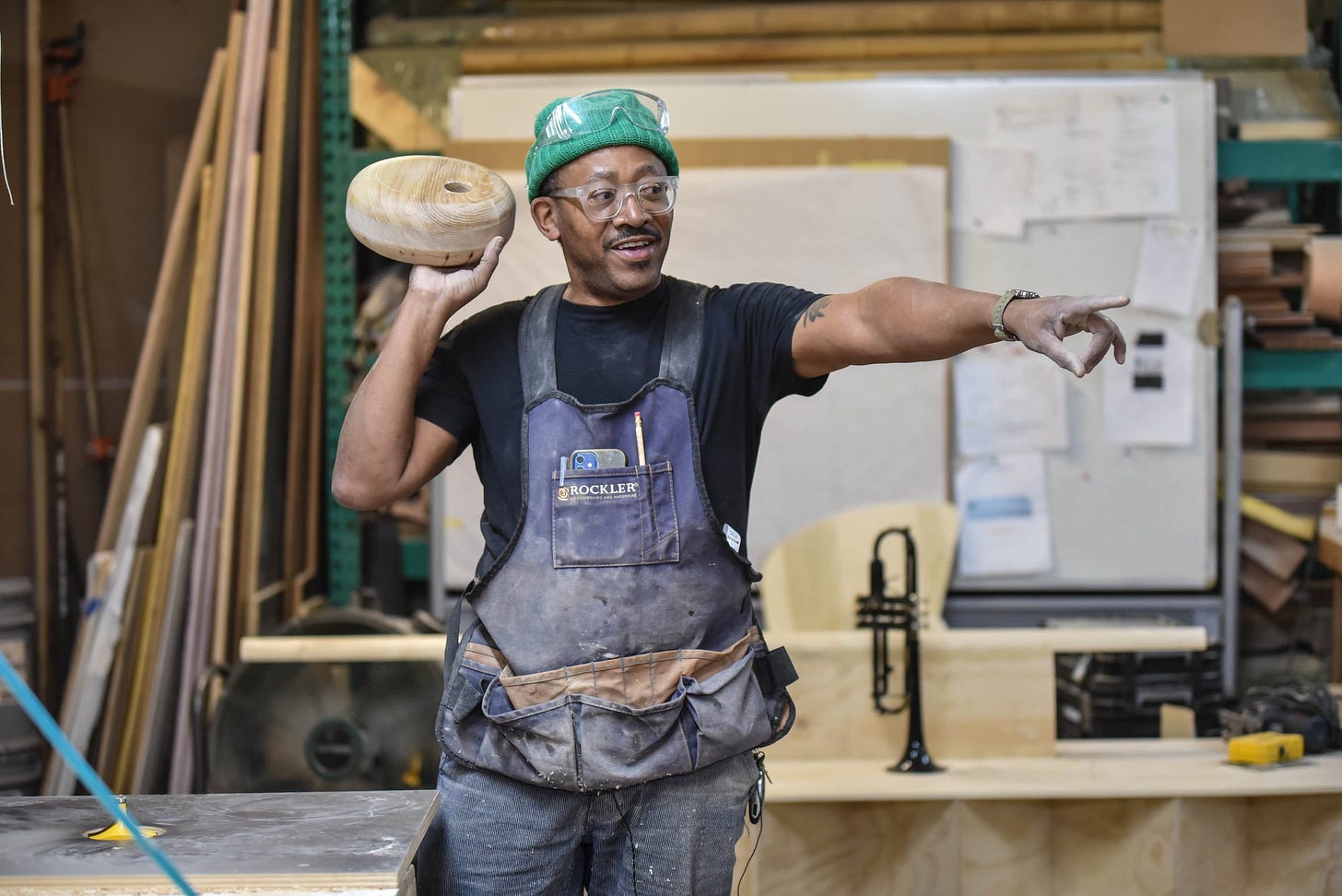Cinematic Conversations: A Doc10 Collection
Non-fictional shorts that weave together emotion, culture, and the beauty of storytelling.
As a film lover, I consider the Gene Siskel Film Center my second home in Chicago. It’s the house of curated films for cinephiles, right in the heart of the city. (It deserves its own post, and it’ll get one. Promise.)
Doc10 is an annual film festival that premieres 10 highly curated documentaries in Chicago, and this year, the Gene Siskel Film Center hosted its Shorts Program. As a fan of short films, including non-fictional ones, I couldn’t resist and had to check them out.
I didn't just watch them. I spiraled, I Googled, I took notes. Here's a closer look at a few favorites, in no particular order (honestly, I loved them all, but had to narrow it down so I wouldn’t totally overload you):
(1) Black Tide | Director: Kim Yip Tong | France, Mauritius | 14 min
The only animated short film on this list, Black Tide tells the story of an oil spill that devastated the island of Mauritius on July 25, 2020. The worst ecological disaster the region has ever faced.
Throughout the film, the voices of those who lived through it guide the story: their initial fear as they realize what’s happening, the confusion, the helplessness, and later, the hope, as they narrate how the community came together, working tirelessly to remove the oil from their waters and lands.
The animation reflects the emotional landscape with striking imagery; at first, dark, haunting visions of leaking oil as it strangles the fauna and flora. Then, as the story shifts, the spirits of the animals lost in the spill return, not to haunt, but to help. In a moving, almost spiritual sequence, they join the community in cleansing the sea and undoing the damage.
The music plays a crucial role, carrying the audience from despair to quiet resilience. It’s a journey from the heavy, almost unbearable sounds of disaster to the calm, healing presence of collective care and remembrance.
As of December 2024, the impact of the incident is still being felt, with oil still present, according to researchers.
The director, Kim Yip Tong, is a multidisciplinary artist from the island of Mauritius. You can check out more of her beautiful work on her website. While you’re there, I highly recommend watching DIME, a video she created in collaboration with the Mauritian band Patyatann, following the Wakashio oil spill.
As a versatile artist, Kim also expresses her creativity through vibrant paintings inspired by the living world that surrounds us.
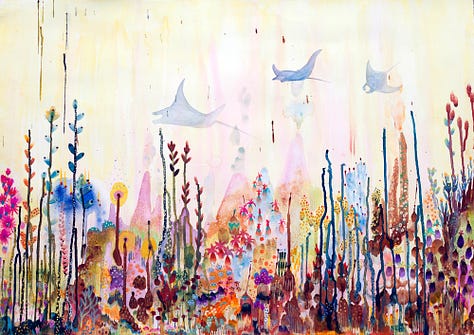
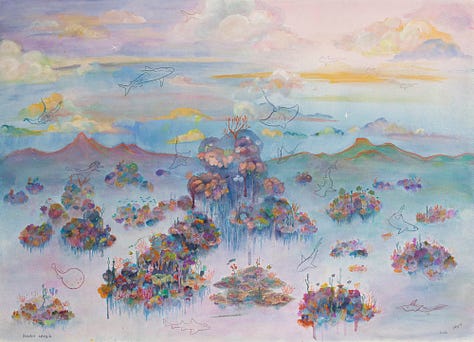
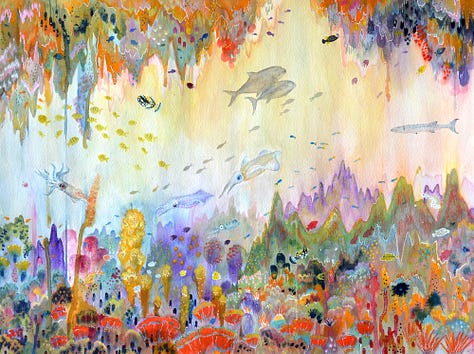
(2) Correct Me If I’m Wrong | Director: Hao Zhou | Germany, USA | 23 min
This one might be my favorite from the list. A must-see.
It tells the story of Hao, a 32-year-old seen by their mom and grandma as the “she-boy.” The narrative walks you through the lengths their family will go to (and I mean anything) to try to “correct” Hao from their queerness, all in hopes that they’ll marry a woman and, as Grandma says, “have life go on smoothly.”
It’s a deeply sad story, because you feel the desperation from both sides: Hao’s quiet suffering, and the family's frantic attempts to “save” them. Together, they paint a vivid glimpse into the lack of empathy the LGBTQ+ community still faces in China today.
The film also highlights the role of superstition in Chinese culture. At one point, Hao’s mother explains how, due to the one-child policy, she was forced to have an abortion, and now believes the spirit of the lost daughter lives on inside Hao, repeatedly referred to as the “demon girl.”
Throughout the film, you see various ancient rituals aimed at “cleansing” Hao: Qigong (a practice combining mindful movement, breathwork, and meditation), ancestral corn-eating for detoxification, and even cupping therapy to “extract” the feminine spirit. And through it all, Hao remains astonishingly compassionate. They understand the traditions that shaped their family’s beliefs, even as those beliefs break their heart.
One of my favorite details was how the film captured the living spaces, especially the crowded ones. There’s something deeply human about the lack of minimalism shown, with clothes hanging everywhere (yes, including Grandma’s panties). It really conveys that people actually live there, creating a kind of beautiful chaos that feels both tender and authentic, with an aesthetic that’s uniquely raw and real.
Hao Zhou is not just the main character, they’re also the director of their own life story. Hao has directed other shorts too, including Here, Hopefully, which won Best Short at Doc10 in 2023.
(3) Livestreams with Grandma Puzzles | Director: Emily Sheskin | US | 6 min
The “feel-good” (and shortest) short of the list.
It opens with Adele, a grandmother with a special place in her heart for puzzles. As she works on them, she reminisces about the days when she would do puzzles with her kids, a quiet ritual stitched into her memory.
Her daughters set up a Twitch account so she could follow her son, who’s gained a bit of fame streaming video games. But then something unexpected happens: Adele starts chatting with his audience (who instantly clock her as the player’s mom), and suddenly, becomes quite famous too.
Eventually, she turns her own Twitch channel into a place where she streams herself completing jigsaw puzzles (very quickly). Many of the puzzle designs highlight Black talent, and Adele shares her dream of forming her own team of puzzle competitors, solely comprised of people of color, to compete in the World Jigsaw Puzzle Championship in Spain.
It’s a beautiful reminder that there’s still wholesome, joyful content online if we slow down enough to look for it, and proof that there’s absolutely no age limit for Twitch stardom (Go Grandma!)
This month, she broke her own record by completing a 500-piece puzzle in under an hour (57 minutes and 48 seconds, to be exact). You can catch her livestreams at twitch.tv/ijustlovepuzzles.
(4) How The West Was Fun | Directors: Sarah Garrahan & Sue Ding | US | 14 min
Fun and fresh.
I especially loved the static framing of this one. Every shot was beautifully composed. Filmed in Trail Dust Town, a Wild West-themed park in Tucson, Arizona, built in 1961 and still owned and operated by the same family, now in its third generation.
The short focuses on visitors getting their old-time portraits taken at Barking Iron Old Time Photography (the longest-running old-time photo studio in Tucson, which begs the question: how many could there possibly be?).
The photographer’s a character in his own right, keeping things light, funny, and playful with every group that steps through the door. You really do laugh. A simple, well-crafted documentary that captures a small, nostalgic slice of America without ever feeling cheesy.
(5) Norman Teague: Love Reigns Supreme | Director: Adewole Abioye | US | 16 min
Norman Teague is a designer from the South Side of Chicago who crafts beautiful pieces of furniture in his workshop, next to the streets of Chinatown.
The short follows Norman as he prepares for an exhibition inspired by the music of John Coltrane (one of the most influential and acclaimed figures in jazz history), while also grappling with the existential crisis faced by Black youth today; a struggle he addresses through mentorship and community-driven projects. You can see glimpses of these efforts in the film, especially through the construction of public pavilions that serve as social spaces.
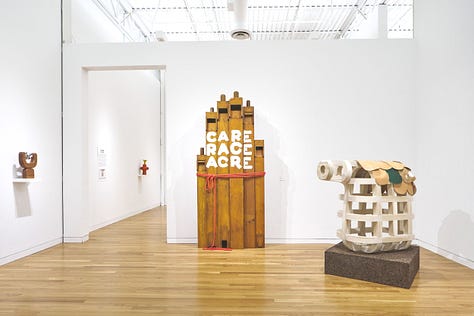
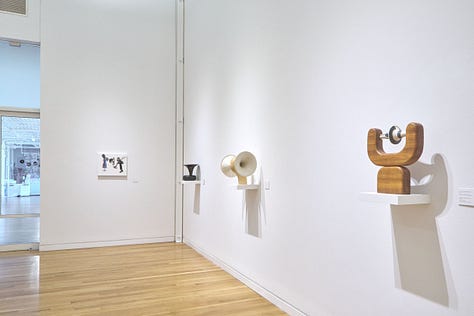
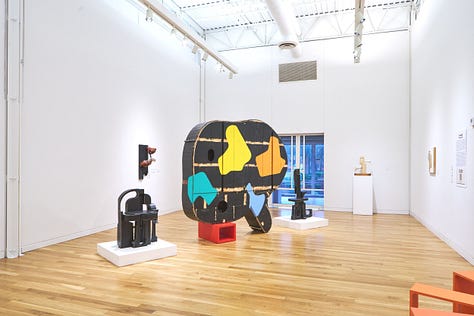
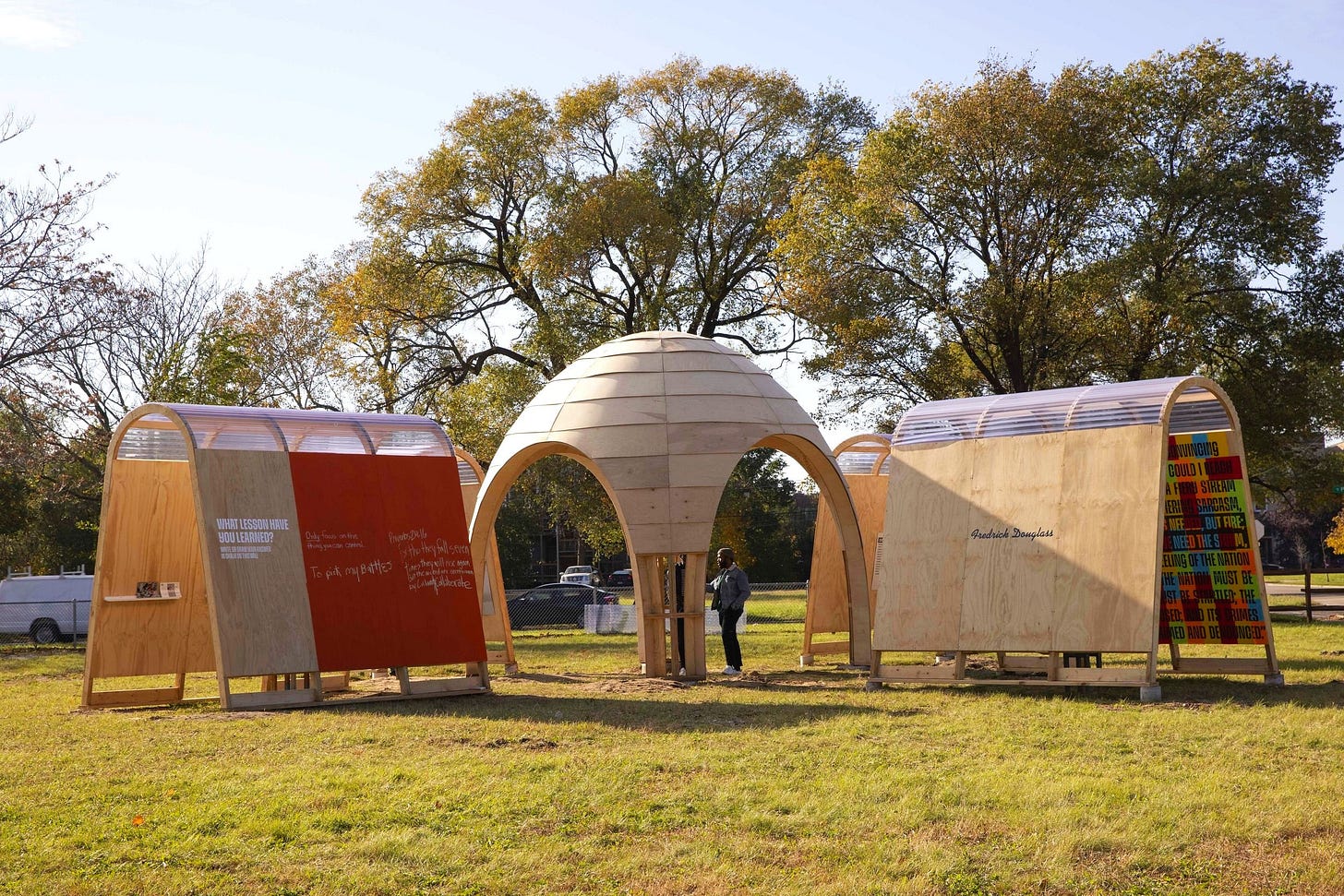
I also had the chance to attend the Q&A the Doc10 team hosted with the short's director (Adewole Abioye) and Norman himself. They mentioned they originally wanted to feature the actual sounds of Coltrane in the film but weren’t able to due to budget restrictions (though his presence is still felt in every frame).
Another exciting bit: the short is part of a 3-part series premiering on PBS starting July 1st, 2025.
Norman also shared that he currently has an exhibition up at MoMA, running through May 11, 2025.
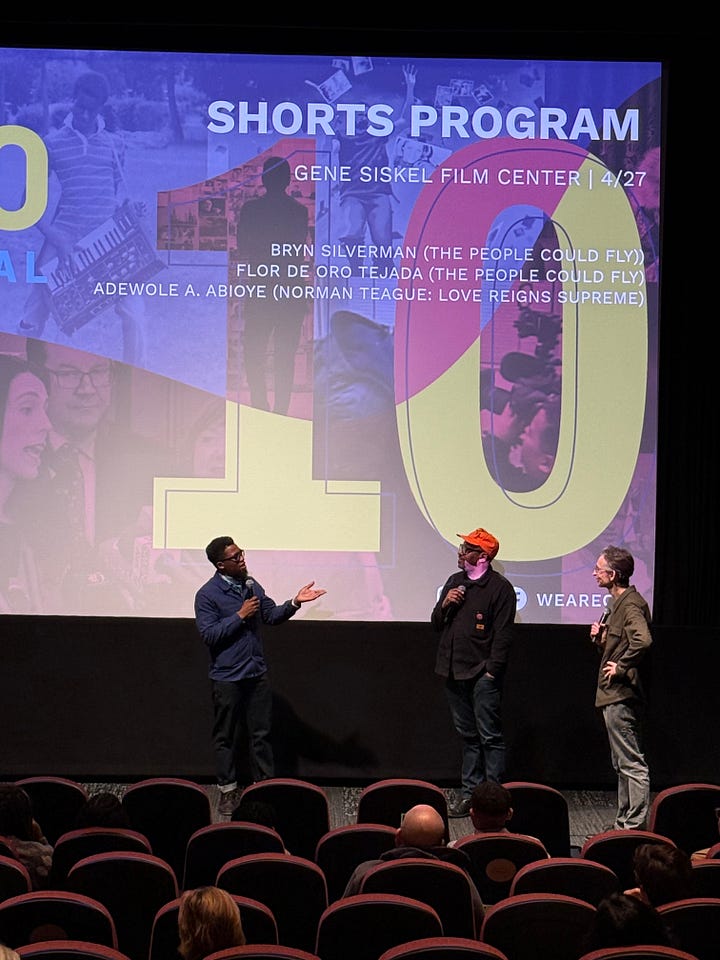
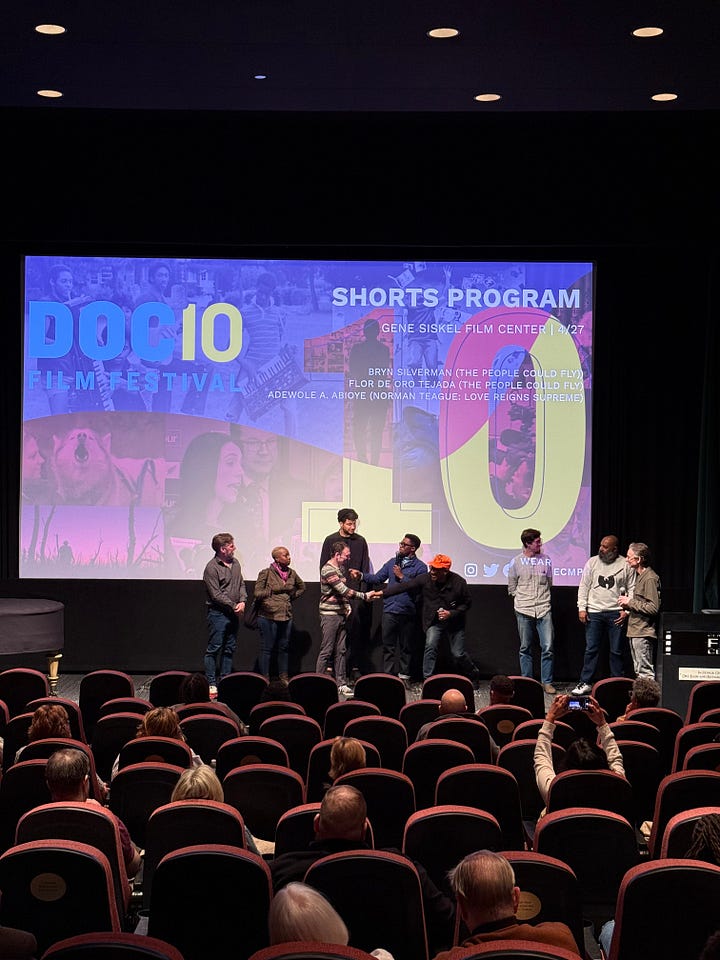
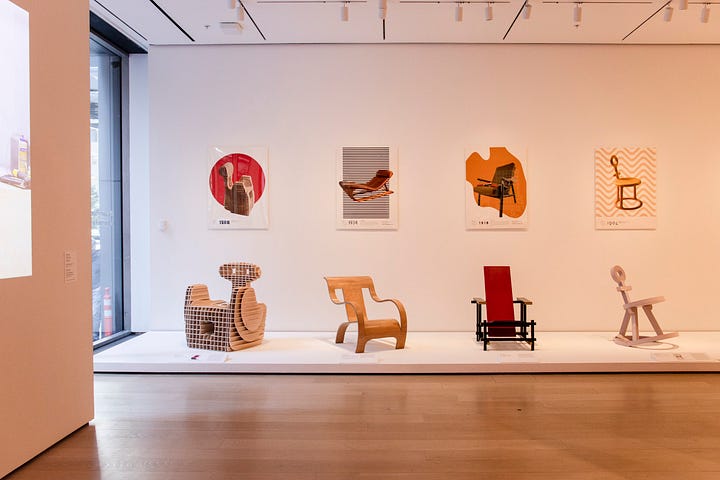
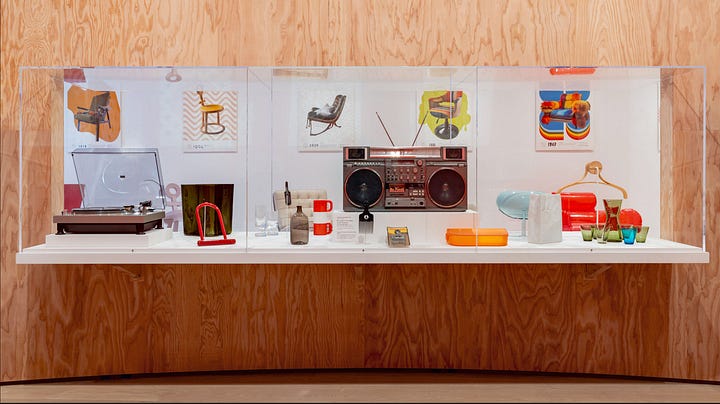
After watching the short, I was immediately drawn to Norman’s work. These are some of the pieces that stood out for me:

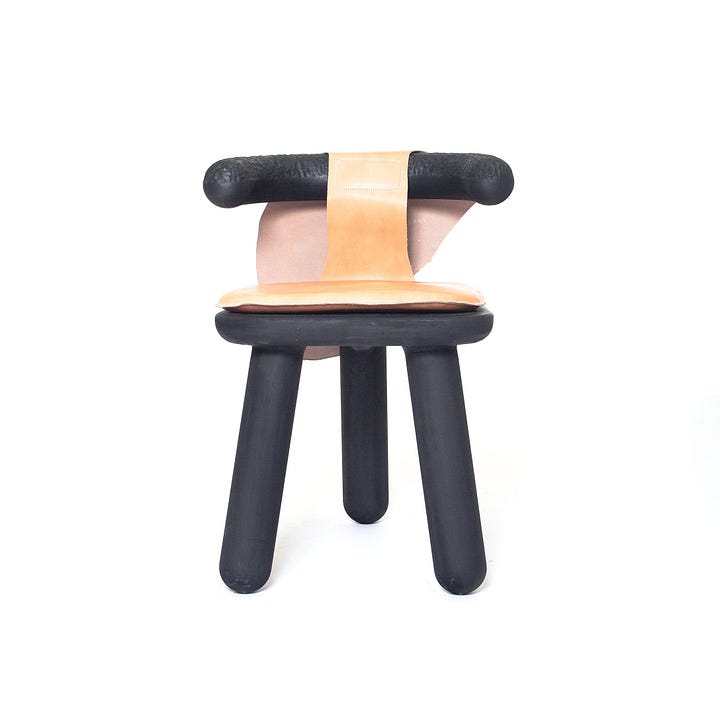
(6) Shanti Rides Shotgun | Director: Charles Frank | US | 8 min
Shanti teaches kids of wealthy families, including A-list celebrities, how to drive in Manhattan, working at the Empire State Driving School (4.9 stars on Google! Important detail).
You get a taste of what a driving lesson with her feels like, and the team does a great job capturing the beautiful chaos that is New York City and its chaotic streets.
Her coworkers describe Shanti as “disrespectful in a funny way,” and yes, the word bitch flies more than a few times, but somehow, it’s charming.
Also worth mentioning: Shanti has a 99% passing rate after more than 30 years on the job. Icon behavior.
The director also captures Shanti’s vulnerable side as she opens up about losing her husband, and how her life now mostly revolves around driving lessons, long baths and sleep. Simple, but moving.
The title? Clever. The ending? Perfect. Bonus points for the note that every kid featured passed their exam with flying colors.
Moment of truth here: I still need to get my driver’s license, and after watching this, there’s absolutely no way I’m taking lessons unless it’s with Shanti.
Some streaming dates are still TBD, as these docu-shorts were only available through the festival’s run. We’ll add a comment once more information becomes available!
Shorts have the remarkable ability to deliver powerful stories and messages in a condensed format, captivating the audience’s attention while still leaving a lasting impact. They remind us that even in brief moments, there is so much to be discovered and felt. Documentaries, especially, offer a lens into what’s happening around us, what has shaped us, and where we might be headed. Serving as a source of information delivered in the most artistic, emotionally resonant way. It’s a reminder that sometimes, less truly is more.
Until the next detour.





